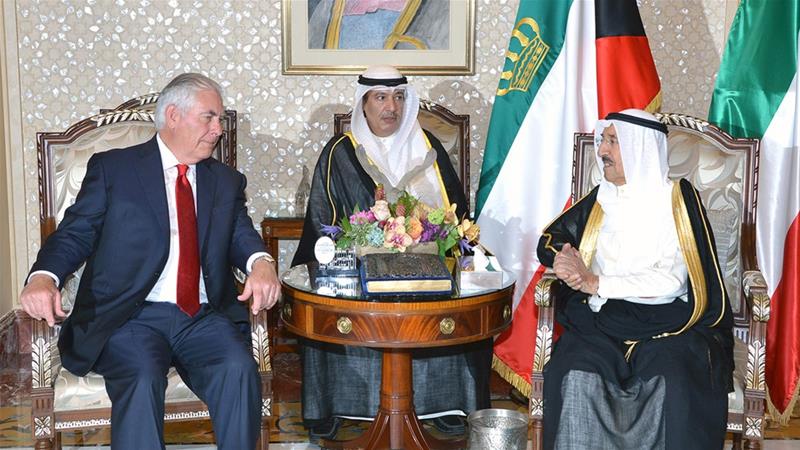US to broker Gulf peace?
July 12, 2017 | Expert Insights

The United States and Qatar have announced that they have signed a memorandum of understanding to jointly fight terrorism. The MoU comes at a time when a number of Gulf nations including Saudi Arabia have cut off diplomatic ties with Qatar for allegedly sponsoring terrorism.
Background
In first week of June, Saudi Arabia along with its allies announced that they were severing diplomatic ties with Qatar. Since then, Qatar’s borders, airspace and even sea links have been cut off. The former has said that their actions were prompted by Qatar’s link to terrorist groups. Qatar for its part has staunchly denied those claims. Another reason for this isolation was Qatar’s growing links to Iran, a country with acerbic relations with Saudi Arabia.
The Arab bloc led by Saudi Arabia had 13 non-negotiable demands from Qatar. They had called upon Qatar to scale down its ties with Iran and sever its alleged links to al-Qaeda, Muslim Brotherhood and other Islamic militant groups. They also want the state to shut down Al-Jazeera.
Qatar has ignored the deadline set by the Saudi-bloc. It is also looking to seek compensation from the Saudis, UAE and Bahrain for the economic damage it has suffered due to the blockade.
Analysis
US Secretary of State, Rex Tillerson, is currently on a four-day tour to the Gulf region. He held talks in Kuwait with the objective of resolving the crisis. Kuwait has been the mediator between the regions but has not yet been able to succeed.
Tillerson subsequently visited Qatar. During this visit the two nations signed their MoU. In a joint press conference with Qatari Foreign Minister Sheikh Mohammed al-Thani, Tiillerson remarked that he is hopeful of making some progress in resolving the conflict.
In turn, the Saudi-bloc has commented that this agreement between the US and Qatar is “insufficient.” As part his outreach, Tillerson would be heading to Saudi Arabia to meet with King Salman bin Abdulaziz Al Saud. During this visit, he is likely to try and persuade the Gulf bloc to come back to the negotiating table so that the crisis can be resolved.
Assessment
Our assessment is that unless the US can incentivize Qatar to accept some of the demands, this problem will remain intractable. The inability to resolve this intransigence would mean more leeway for Russia, Iran and Turkey to operate in this region. This is definitely not what Saudi Arabia, the traditional ally of the US would like. The US would also like to ensure that its relationship with Qatar is robust given that the country has enough energy resources to more than 100 years. There is also a humane component to all of this - migrant workers have started suffering in the country as food prices have continued to rise.








Comments